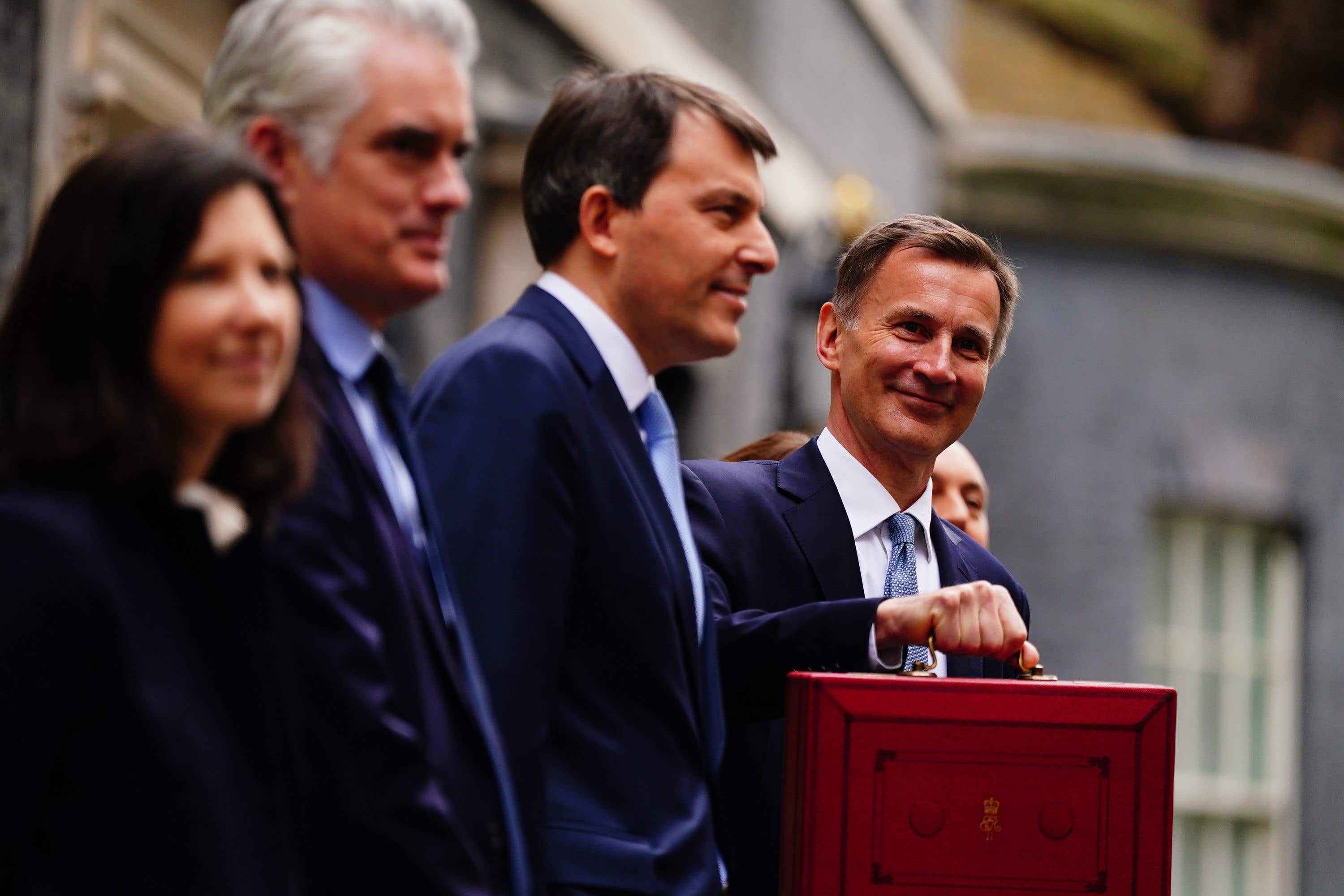The only surprise in a boring Budget was a tax break for the rich
The handout to the better-off obscured a reasonably good story that the chancellor could tell, writes John Rentoul


Most of the Budget had been advertised in advance, either on purpose or by leaks. The increase in defence spending was announced a few days ago, and the Treasury has been issuing a stream of news releases setting out most of the measures, in an attempt to win favourable headlines over several days.
Yesterday, the leak of the childcare plans meant that Jeremy Hunt was deprived of his final flourish in the chamber. That meant that almost the only surprise, apart from some terrible jokes about warm ale and frozen duty, was the decision to lift the lifetime limit on pension fund contributions.
Usually, Budgets are preceded by speculation about the abolition of higher-rate tax relief for pension contributions, one of the options for clobbering the rich that seems quite straightforward but is always stiffly resisted. This Budget, on the other hand, was preceded by informed speculation of the opposite kind: that the lifetime limit on pension contribution relief would be lifted from the current level of £1m.
“I have decided not to do that,” Hunt said. “Instead I will go further and abolish the lifetime allowance altogether.” He said this would stop 80 per cent of NHS doctors from receiving a tax charge, which is encouraging some of them to retire early. But instead of a change applying only to doctors, he said that “no one should be pushed out of the workforce for tax reasons”, so he raised the annual allowance and abolished the lifetime limit for everyone.
The change is technical, so he may have hoped that people wouldn’t understand it, but the principle of giving a bigger tax break to people with relatively generous pensions is pretty obvious.
It cut against the unexpected rhetoric of another part of the Budget speech, in which Hunt boasted that the Conservatives have “cut inequality” since taking office, jointly with the Liberal Democrats, in 2010.
This is a marginal claim to make: the overall measure of income inequality has fallen slightly since the last fiscal year of the Labour government, according to the Office for National Statistics – but a better interpretation might be that the trend has been broadly unchanged.
The Budget documents show that the decisions taken in the autumn statement and the Budget together were “progressive”, in that people on lower incomes gained more in cash terms than the better-off. The chart shows that, although tax cuts tend to accrue more to the better-off, cost of living payments, energy support, welfare benefits and the value of public services are all skewed towards the poor.
Given that the Conservatives have a reputation for favouring the rich that is not completely justified – or, at least, has not been justified since Margaret Thatcher’s time – the pension boost for the better-off seems counterproductive. If Hunt had focused on the specific problem of doctors opting for early retirement to avoid a tax charge, as Keir Starmer said in his Budget response, Labour would have been forced to support it, and there would have been remarkably little for the opposition to complain about.
As it is, Hunt and Rishi Sunak cannot point to the progressive nature of all their fiscal decisions taken together, because the main news from Wednesday’s Budget is a £1bn-a-year bung to the rich.
This was an unnecessary gift to the opposition, which would otherwise find itself in a difficult position as a result of this Budget. The independent experts of the Office for Budget Responsibility and the Institute for Fiscal Studies all agree that Hunt is taking quite a risk with his fiscal rules, running his targets close. Professor David Miles of the OBR said that, while there is a greater than 50 per cent chance that the chancellor will hit his fiscal target of debt falling as a share of the economy within five years, “it’s not much higher than 50 per cent – even relatively small economic shocks can have a pretty big impact”.
The significance of that is that there continues to be no “headroom” that Labour could promise to spend in its election manifesto. No wonder Rachel Reeves, the shadow chancellor, started to retreat cautiously last weekend from Labour’s promise of huge capital spending on green investments – because if she accepts the OBR’s forecasts she wouldn’t be able to afford them and to stay within the “falling debt” rule, which Labour also accepts, without putting up taxes.
But Labour can bang on happily about Hunt’s handout to the rich for the next few days instead of explaining how a Labour government would meet its own fiscal rules.






Join our commenting forum
Join thought-provoking conversations, follow other Independent readers and see their replies
Comments